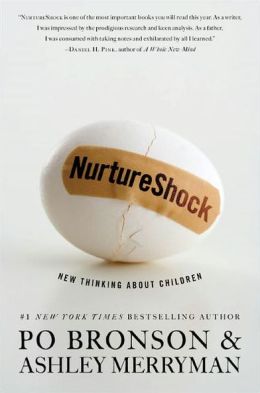I recently read Howard Glasser's, All Children Flourishing, and I was struck by both the simplicity of the Nurtured Heart Approach® and the complexity of how children can be shaped by their environment. Glasser describes an approach that highlights the positive and sends a message of "greatness" to the child, and the child in turn begins to tap this under-utilized potential to achieve at a level previously believed to be impossible. His theory is based on the concept that, at their core, children want and thrive on attention. Either positive or negative, any attention is better than no attention. At an early age, children may learn that when they're playing quietly, they're often ignored. But when they're misbehaving, they hit the jackpot of undivided adult attention. The more we act out, the greater the reward. Not only do we learn how to effectively get what we want (i.e. attention), we begin to develop an identity that shapes our future potential. The behavior becomes an expectation.
The Nurtured Heart Approach® describes a shift in how parents and teachers perceive and react to children. It describes a proactive positive message that begins with the bar set as low as it needs to be to provide a preemptive strike (catch them being good!). "I see how you are patiently waiting your turn. This really shows me how considerate you are of your classmates and how great you are." It takes the positive message a step further in not just praising good behavior but also describing why the behavior is good and setting up potential for future success with this label of "greatness". Consequences for breaking established, clear rules also exist but they are done in a way that doesn't energize the behavior. Glasser makes the parallel to video games–you get the consequence of "messing up" in a game and the game then continues or starts over. There's no dwelling on it. It's not emotionally charged in any way.
 Overall, it's a well thought out approach that has more complexity than I can describe in this blog (thus a Nurtured Heart Approach® industry of books, trainings, etc.), but you get the idea. If you're interested in attending a Nurtured Heart Approach® training, the dates for the next class have been set for January 29 and February 5, 12, and 19. Again, this class will be taught by Kimberly Montgomery through the YMCA. I'll post more information as it becomes available.
Overall, it's a well thought out approach that has more complexity than I can describe in this blog (thus a Nurtured Heart Approach® industry of books, trainings, etc.), but you get the idea. If you're interested in attending a Nurtured Heart Approach® training, the dates for the next class have been set for January 29 and February 5, 12, and 19. Again, this class will be taught by Kimberly Montgomery through the YMCA. I'll post more information as it becomes available.If this idea of how the messages we send our children may impact their future self, another book I'd recommend (not Nurtured Heart Approach®) is Nurture Shock, by Po Bronson and Ashley Merryman. Bronson and Merryman go beyond positive and negative messages and explore how what we believe to be a positive message may in fact have the opposite effect.
